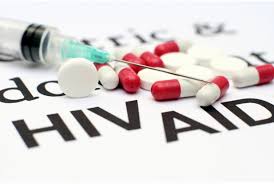Nigeria to Produce HIV Test Kits & Drugs Locally—Ending Foreign Dependence by 2025
Nigeria to Produce HIV Test Kits & Drugs Locally—Ending Foreign Dependence by 2025
By Achimi Muktar
In a groundbreaking move, the Nigerian government has announced plans to begin local production of HIV test kits and anti-retroviral drugs before the end of 2025—a shift that could transform the fight against HIV/AIDS in the country.
The Director-General of the National Agency for the Control of AIDS (NACA), Temitope Ilori, made the revelation on Friday in Ilorin during the inauguration of the Kwara Prevention of Mother-to-Child Transmission (PMTCT) and Paediatric ART Acceleration Committee.
She explained that this initiative is part of Nigeria’s strategy to eliminate AIDS as a public health threat by 2030, alongside efforts to enroll individuals in the National Health Insurance Scheme (NHIS), mobilize state resources, enhance advocacy campaigns, and support HIV vaccine research.
Ilori painted a stark picture of the HIV crisis among children, citing the 2023 UNAIDS report, which shows that:
🔴 140,000 children (0-14 years) are currently living with HIV in Nigeria.
🔴 22,000 new infections occur annually.
🔴 15,000 AIDS-related deaths are recorded each year.
Despite ongoing efforts, she noted that Prevention of Mother-to-Child Transmission (PMTCT) and paediatric HIV coverage remain at a dismal 33%—far below the 95% target.
“To address this, the Global Alliance Action Plan to End AIDS in Children was developed in 2021, with full financial support. Yet, coverage remains suboptimal,” she said.
Even in Kwara State, where HIV prevalence is 0.8%—lower than the national average of 1.4%—women are disproportionately affected, with a prevalence of 1.3% compared to 0.4% in men.
Some local governments, she added, still require targeted interventions to further reduce prevalence.
With the establishment of state-level acceleration committees, Ilori stressed the importance of government-led sustainability in HIV response efforts, especially as foreign donor support remains uncertain.
“Over the past few days, I have received numerous calls regarding the implications of the 90-day foreign aid suspension on our HIV programme. While we are relieved that HIV services remain exempt, this situation underscores the need for government-driven solutions,” she said.
To address this, the Minister of State for Health and Social Welfare, Iziaq Salako, has established a National Acceleration Committee to fast-track interventions, eliminate mother-to-child transmission, and enhance real-time HIV programme monitoring.
Ilori outlined the key government strategies to reduce dependency on foreign aid and ensure long-term success:
✅ Integrating HIV services into the national health system.
✅ Strengthening government-led HIV response structures.
✅ Releasing state and local government funds for HIV programmes on time.
✅ Developing sustainable non-health components of the response.
✅ Empowering civil society to serve as advocates and community service providers.
The Deputy Governor of Kwara State, Kayode Alabi, assured that MTCT (Mother-to-Child Transmission) of HIV would soon become history, thanks to the newly established committee.
With the clock ticking towards 2030, Nigeria’s decision to manufacture HIV test kits and anti-retroviral drugs locally could be the game-changer needed to achieve an AIDS-free generation. But will the government match its ambition with action?



















